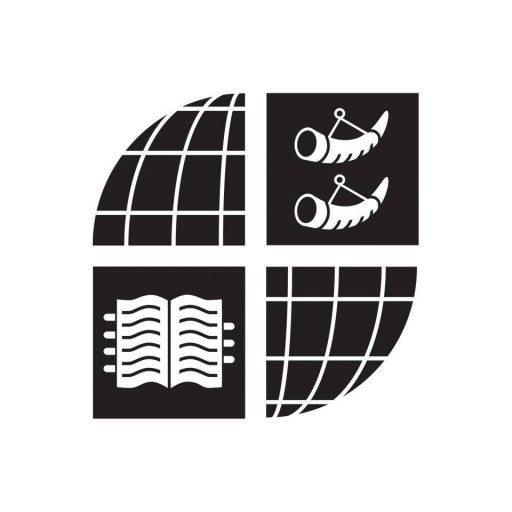Photos of university / #livuni
The MA in Egyptology is designed for graduates in Egyptology related disciplines, who want to deepen their knowledge of Egyptian language and/or material culture.
It provides intensive preparation for research and offers you training in fields such as analytical and generic problem solving: skills that any employer will value.
The core component of the taught programme is the development of skills and practices necessary in the pursuit of scholarly research in the discipline. Our one-year curriculum puts emphasis on the integration of the taught modules (such as language, research practices, material culture, social history, landscape archaeology) with individual research projects (dissertation).
Tuition is carried mainly through weekly seminars and presentations, assisted by short lectures providing the framework knowledge needed to engage with the analysis of the material. Our MA students are also encouraged to take full advantage of the range of classes offered in the department, and to sit on available modules dispensing breadth and depth of knowledge in the areas of study relevant to their research interest.
The taught component of the programme is carried alongside and contributes directly to the shaping and advancement of the students’ individual research project (dissertation) to be completed by the end of the year (September).
Students in the MA Egyptology programme complete:
- Dissertation: (4 units=60 credits)
- Required Taught skills Modules: (4 units=60 credits)
- Optional Taught Modules: (4 units=60 credits)
Students with a research interest involving archaeological method and practice or with interest that stretch beyond Pharaonic Egypt, either into contemporary cultures of the Near East or the Mediterranean or into the Graeco-Roman period, may choose modules outside the specific discipline of Egyptology.
Compulsory modules
- Dissertation (ALGY712)
- Research Skills In Egyptology (ALGY783)
- Research Design In Egyptology (ALGY784)
Optional modules
- Fast-track Egyptian for Postgraduate Students I (ALGY717)
- Intermediate Egyptian Texts I (ALGY707)
- Advanced Egyptian I (ALGY705)
- Advanced Later Egyptian (ALGY715)
- issues In Egyptian Settlement Archaeology (ALGY676)
- Professional Skills for The Archaeologist (ALGY691)
- Research Themes In The Neolithic of Europe and The Near East (ALGY656)
- Fast Track Egyptian for Postgraduate Students Ii (ALGY718)
- Intermediate Egyptian Texts Ii (ALGY708)
- Advanced Egyptian Ii (ALGY706)
- Hieratic (ALGY703)
- issues In Egyptian foreign Relations (ALGY678)
- Social Life In Egypt (ALGY677)
- Artefacts and Analysis (ALGY737)
- Economies and Exchange In The Ancient Near East (ALGY688)
- Aegean Bronze Age Interconnections and Interactions (ALGY734)
- Bureaucracy and Oppression: Roman Egypt
Requirements
- The normal requirement for entry on to a taught programme is a good 2:1 or equivalent undergraduate degree in a relevant field of study.
- Russian students holding a Magistr Degree at Grade 4, a Specialist Diploma (5 year programme) at Grade 4.25 or a Baklavar (Bachelors) Degree at Grade 4.5 (all scores on 5.0 scale).
- School or college transcripts or certificates
- University/degree transcripts and certificates upon completion. (Partial transcripts are acceptable at point of application)
- Evidence of English language ability
- A personal statement explaining why you want to undertake the programme and why you feel you are a suitable candidate
- Details of two people prepared to provide references (these should be academic references if you have been in full-time education in the last three years)
- A research proposal (if applicable)
- CV (if applicable)
- Portfolio (if applicable)
- IELTS 6.5 (with a minimum of 5.5 in each component)
- TOEFL iBT 88 or above with minimum scores in components as follows: Listening and Writing 21, Reading – 22, Speaking 23
- Please be advised that TOEFL is no longer classified by UK Visas and Immigration as a Secure English Language Test (SELT). However, at the current time the university is continuing to accept TOEFL, at the required level, for entry on to Undergraduate and Postgraduate academic programmes.
Scholarships
- Vice Chancellor's International Attainment Scholarship – PGT
- LIC Merit Award - PGT
- Liverpool Affinity Awards
- Sport Liverpool Scholarships
- Postgrad Solutions Study Bursaries
The Egyptology program at the University of Liverpool offers students a comprehensive overview of ancient Egyptian history, language, culture, and archaeology. The programme is designed to provide a deep understanding of Egypt's rich and complex civilization, spanning from its earliest origins to the end of the Pharaonic period. Students will explore a variety of topics including hieroglyphic writing, ancient Egyptian religion and mythology, archaeological methods, and the socio-political structure of ancient Egyptian society. The course combines academic lectures with practical archaeological training, allowing students to engage with real-world excavation techniques and museum work.
Throughout the programme, students have access to world-class resources, including extensive collections of Egyptian artifacts and access to Egyptological databases. The curriculum is structured to develop critical thinking, research skills, and an appreciation of the significance of Egyptology within broader historical and cultural contexts. The programme encourages interdisciplinary approaches, integrating linguistic studies, art history, and anthropology to enrich students' understanding.
Students may also have opportunities to participate in excavation projects or internships at Egyptian archaeological sites, providing invaluable hands-on experience. The program is suitable for students interested in pursuing careers in academia, archaeology, museum curation, or heritage management. The University of Liverpool also partners with various institutions for research opportunities and conferences, fostering an active academic community focused on Egyptology. Graduates of the programme will be well-equipped with both theoretical knowledge and practical skills necessary for advanced research or professional work in the field of ancient Egyptian studies.

